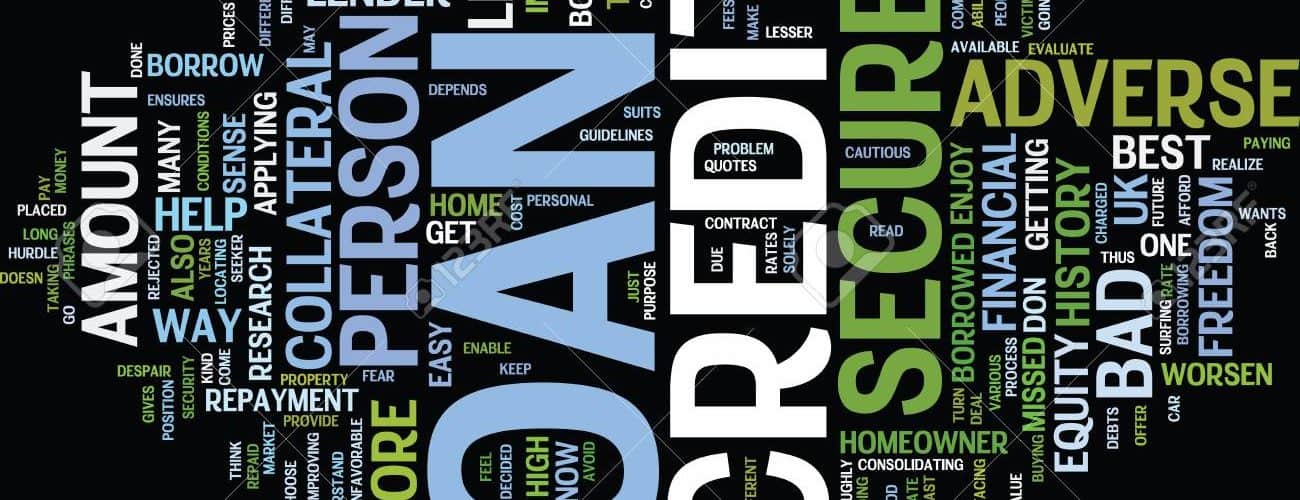While it’s common knowledge that if you have reasonably good credit you shouldn’t have any trouble getting any type of credit or loan. It may be a completely different story for someone who is trying to get an adverse credit secured loan. Taking out a secured loan whether the item used to secure the loan is a boat, car or home may be only slightly difficult to get. The lender has the ability to collect what is owed by repossessing the security item. When the item is sold the lender will usually get all the money that is due them.
There are several rules and regulations that must be followed by all lenders. These rules are enforced by banking industry compliance agencies. There are specific guidelines on the Federal level and most States in the United States have their own rules that must be followed in addition to the Federal ones.
Adverse credit secured loans depend a lot on the credit history of the borrower. Most lenders are somewhat lenient if the adverse credit consists mainly of medical bills. They will be somewhat reluctant to provide credit to someone whose record shows several unpaid revolving accounts or credit cards.
The only drawback to having an adverse credit secured loan is the risk of losing the item if you should default on the payments. The lender may be very quick in taking steps to repossess the item.
In the case of an adverse credit secured loan on a vehicle, the dealer can always take the car. Each state has rules that tell them how they must carry out the repossession. Most lenders will ususally sell the vehicle to try to get the money they are owed. If they should sell it they more than likely must return to you any money they received in excess of what was owed. This does not usually happen though, most sales do not bring in enough to cover the loan so they in turn send you a bill for the difference. To most people this seems unfair, but it really isn’t. If the lender should try to sell the vehicle for full price again they are probably breaking a law. If the case ends up in court and the dealer is found quilty, they will have to pay the borrower the excess money that was received.
Some lenders wil offer refinancing if you should default on the payments. Most of them are more than willing today to try to work with their customers in resolving issues. Refinancing adverse credit secured loans can be exactly what is needed when the borrower has encountered an unexpected set back. If it is only a temporary set back, refinancing may allow for the next expected payment to be sometime in the near future when the borrowers finances have improved.
In the event that you should be refused when you apply for any type of loan, you will be told why by the lender. If the reason is an adverse credit history it would be a good idea to get copies of your credit reports from all the credit bureaus and do everything you can to clean up your credit history before you apply again
If you know that your credit history is not good you may want to clean up as much as you can before you even apply the first time. Try to find a family member who would be willing to co-sign a loan for you to help the lender feel more secure about making you an adverse credit secured loan. Once you do this and have made regular payments the lender will probably allow you to get the next loan on your own.
<>






